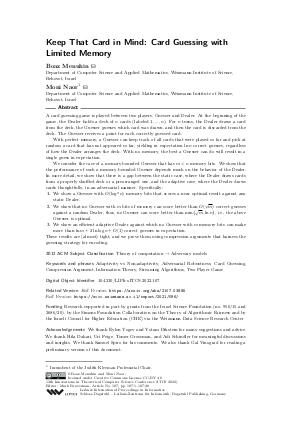LIPIcs.ITCS.2022.107.pdf
- Filesize: 0.77 MB
- 28 pages

 Creative Commons Attribution 4.0 International license
Creative Commons Attribution 4.0 International license



















Feedback for Dagstuhl Publishing